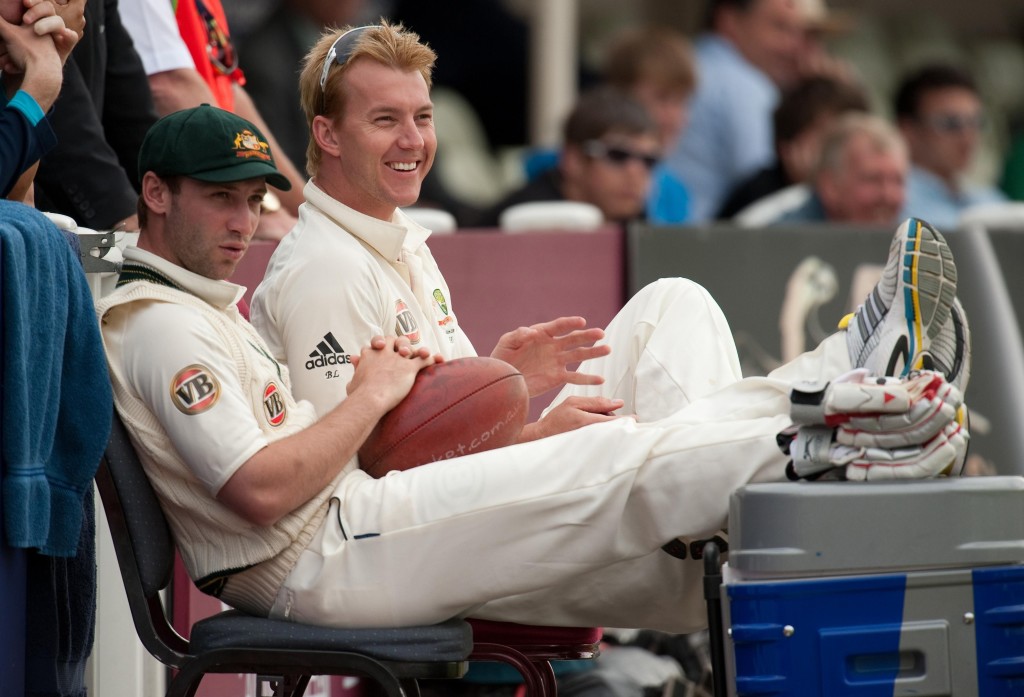Phillip Hughes was the son of a banana farmer from Macksville in northern New South Wales, Hughes delighted and frustrated audiences in equal measure throughout a 26-Test career that yielded 1 535 runs, including three centuries, at an average of 32.65.
This obituary comes courtesy of Brisbane’s Couriet Mail www.couriermail.com.au
A dashing batsman with an unorthodox technique, Hughes was hailed as a future leader of Australian cricket when barely out of his teens.
Indeed, as recently as August, Australian captain Michael Clarke predicted his teammate and protege would join the illustrious ‘100-Test club’ despite the fact Hughes had not pulled on the baggy green since July, 2013.
But inconsistency from both his own blade and Cricket Australia’s selection table ensured Hughes would play just 26 of the 64 Test matches Australia contested since his debut against South Africa in February, 2009.
His homespun technique proved both blessing and curse, making him a difficult target for bowlers but, paradoxically, vulnerable to well-executed plans.
Some suggested he struggled against short-pitched bowling, yet his dismantling of Dale Steyn, Makhaya Ntini, Jacques Kallis and Morne Morkel in Durban suggested otherwise.
Others said his technique and temperament were not suited to No3, yet his 9 023 first class runs by the age of 25 place him in elite territory.
‘He’s got (26) first class centuries,’ Justin Langer, Hughes’ mentor and friend, once said. ‘When I was his age I had one.’
The high- and lowlights of Hughes’ playing career came just four months apart on the playing fields of South Africa and England.
The zenith came in just his second Test match at Kingsmead in 2009, during which he dispatched South Africa’s highly-rated four-pronged pace attack for innings of 115 and 160. In doing so, he became the youngest player in history (20 years and 96 days) to post a century in both innings of a Test match and the youngest Australian Test centurion since Doug Walters.
Difficult times followed. Hughes was trumpeted by the English and Australian press packs ahead of the 2009 Ashes following a stint with Middlesex that netted three centuries and three half centuries in seven games.
But he combined for modest innings of 36, 4 and 17 in the Cardiff and Lord’s Tests as Andrew Flintoff, Australia’s nemesis, provided none of the width the Proteas had offered and concentrated on a full and straight line.
Hughes committed to work on his technique. However, before he could hit the nets, he was controversially dropped by selectors in favour of the relatively untried Shane Watson at the top of the Australian order for the third Test at Edgbaston.
It was the first of Hughes’ four Test axings.
‘Everyone’s got their own technique,’ Hughes once said. ‘I’ve had mine since I was a junior, and going through the ranks. Everyone plays their own way. There’s been a lot of talk about my technique, but everyone plays differently and you’ve got to get runs in the middle.
‘I’m a big believer in being your own person, being yourself and playing how you’ve played all the way through. When you talk to guys who’ve been around the game for a long time, the big thing they do say is to be yourself, and play your own game.’
Hughes’ never complained publicly about his treatment by selectors, even though many within Australian cricketers expressed dismay at the mixed messages and perceived mishandling of such a unique young talent.
‘Dad has been a farmer all his life and (his message is): just go out there, back yourself and score loads of runs so the selectors have to take notice,’ Hughes said during one of his stints in international exile. This hard-working, uncomplaining approach endeared him to both teammates and the public alike.
Hughes scored just one more Test century after his breakthrough series in South Africa, compiling a patient 126 against Sri Lanka in Colombo in 2011. However, optimism was rising within Australian ranks that he was primed to scale international cricket’s summit once more.
Hughes was widely considered the front runner to replace the injured Clarke for the first Test against India at the Gabba next week following his career-best first class score of 243no in August and a consistent start to the Sheffield Shield season.
Playing for his adopted South Australia against his native NSW, Hughes had advanced to 63no from 160 balls on Tuesday.
The 161st delivery will forever be remembered as the saddest ever bowled in Australian cricket.
Photo: Backpagepix





